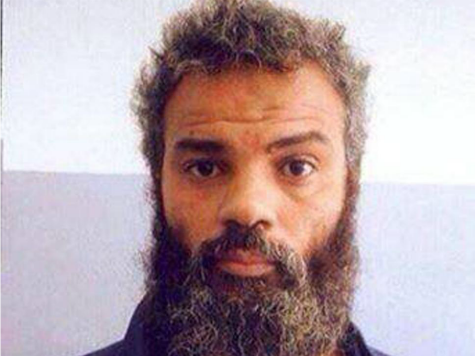
The government of Libya is demanding that the United States return Ahmed Abu Khatallah, a man the Obama administration is calling the “mastermind” of the September 11, 2012 attacks on the American embassy in Benghazi, calling the arrest an “infringement” on Libya’s sovereignty.
“The Libyan government condemns this regrettable infringement on Libya’s sovereignty,” said Libyan foreign ministry spokesman Saeed Alaswad on Wednesday, following the announcement that Khatallah had been arrested and was en route to the United States to be tried there. American officials dismissed the complaints, instead noting that the capture of Khatallah, according to U.S. Assistant Attorney General for the Justice Department’s National Security Division John Carlin, was “a critical step toward bringing him to justice… and we will not rest in our pursuit of the others who attacked our facilities and killed our citizens.”
Khatallah was arrested in a raid involving the FBI and United States military and is being charged with organizing a group of Libyans to attack the United States embassy. While not the only person charged in the indictment, he is being described as the “mastermind” of the Benghazi attack. Previously, the Obama administration had described the Benghazi incident as “spontaneous” and a “demonstration” against a YouTube video entitled “Innocence of Muslims.”
Libya decried both the removal of Khatallah from Libyan territory, citing a warrant by the Libyan government for his arrest, and the arrest itself, which the United States described as a “unilateral” action. “We had no prior notification,” Justice Minister Saleh Marghani later confirmed, adding, “We did not expect the U.S. to upset our political order.” The government alleged that Khatallah remained free because turmoil in Benghazi made it too difficult to safely capture the suspect, though Khatallah was known to roam freely in Libya and had even previously dared authorities to arrest him.
Khatallah spoke to CNN in May 2013 in a luxury hotel, as well as to the Associated Press a year later. In the immediate aftermath of the attack, the New York Times famously described him as leisurely sipping a frappé in public, dismissing any possibility that either the Libyan or American governments would do anything to capture him. His public persona and media profiles in which he appeared little concerned of the possibility of being arrested have raised questions as to whether the Libyan government’s demand for his return is valid. Despite the arrest warrant, there is ample evidence, many of it in interviews with Western media, that Khatallah was permitted to live freely near Benghazi after the attack.

COMMENTS
Please let us know if you're having issues with commenting.